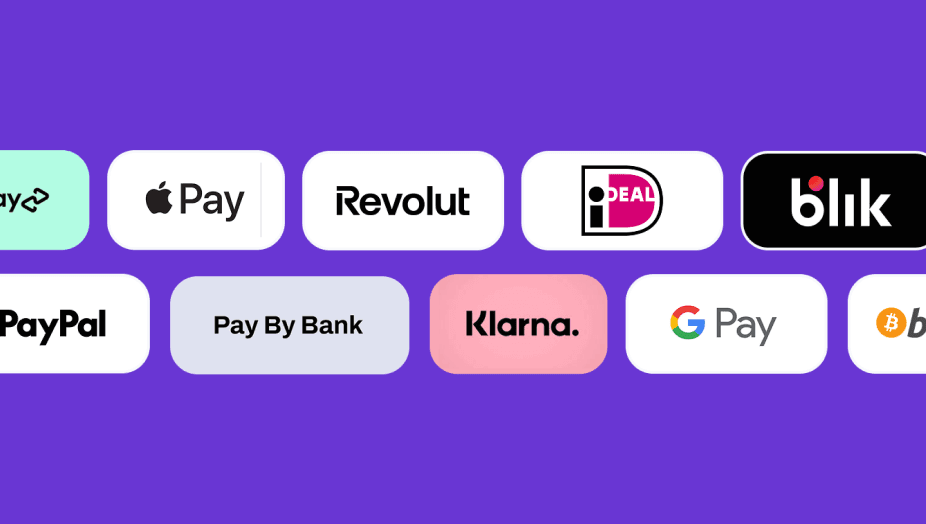
Open banking is often linked to data sharing, but its impact on payments is just as valuable for insurance agencies.
Premiums, instalments, claims – handling them with outdated systems leads to delays, failed transactions, and extra admin. Open banking offers a cleaner, more reliable alternative.
It helps reduce costs, cut friction, and speed up how money moves, making life easier for both insurers and customers.
Here’s how open banking and insurance are coming together to improve payments and how Noda makes it easier to put into practice:
What is open banking for insurance providers?
Open banking gives third-party providers access to a customer’s financial data, like transaction history, income, and spending habits – through secure APIs. Importantly, this access only happens with the customer’s consent. It puts users in control and allows financial institutions to create more relevant, personalised services.
For insurance providers, open banking offers a smarter approach to handling payments. It supports direct account-to-account transfers with customer approval, helping reduce card-related issues like expiries or limits.
Premiums and instalments can be collected on time, and payouts reach customers without the usual lag. This makes payment flows more predictable and cost-effective for insurance businesses, and more convenient for customers.
Why insurance companies need open banking
Open banking is helping insurance companies modernise the way they onboard customers, process claims, handle payments, and price policies – making everything faster, smarter, and more customer-friendly.
Stronger fraud checks
Open banking supports better fraud prevention by giving insurance providers a clearer view of financial activity. With access to transaction history and account details (with customer consent), providers can flag unusual patterns early and run smoother AML and KYC checks in the background.
Smoother onboarding
Signing up for a policy shouldn’t feel like hard work. Open banking makes the application process simpler by letting customers share financial data digitally, straight from their bank account. There’s no need to upload PDFs or hunt down documents.
Insurance providers get verified data in seconds, helping them make faster decisions and remove unnecessary friction from the journey.
Faster claims
When someone makes a claim, timing matters. Open banking helps insurance agencies move faster by instantly verifying account details and sending payouts directly to the customer’s bank. It takes the pressure off support teams and speeds up the experience for policyholders.
Smarter pricing
Insurance pricing has long relied on fixed details like age, postcode, and basic credit scores. But those only tell part of the story. With open banking, insurance agencies can work with live financial data, giving a clearer picture of someone’s day-to-day financial habits.
That helps build more accurate risk profiles and offer fairer, more personalised premiums. If a customer manages their money well, that can be reflected in their policy. It’s a more flexible way to price, and it helps insurance providers better meet the expectations of today’s customers.
Open banking benefits for insurance companies
Open banking is changing how insurance providers handle payments, here’s where it’s making the biggest difference:
Faster, more accurate underwriting
Underwriting has always been about understanding risk, but the tools insurers have used haven’t always kept up. With open banking for insurance, providers get access to real-time financial data like income and spending behaviour. That means faster assessments, more accurate pricing, and less guesswork.
It’s a more efficient way to underwrite, helping insurers move away from outdated statements and slow credit checks, and build a stronger insurance payment system in the process.
Simplified claims, faster payouts
Claim delays are frustrating for everyone. Open banking helps speed things up by letting insurers verify bank account details instantly and pay out approved claims directly – without card failures, manual checks, or unnecessary back-and-forth. It’s a simpler, faster approach to insurance payment processing that helps customers get their money when they need it most.
Streamlined premium collection and payments
Card payments can fail for all sorts of reasons: expiry dates, insufficient limits, blocked transactions. Open banking offers a more reliable alternative. Insurance providers can collect premiums, instalments, and excess fees straight from a customer’s bank account using secure, direct account-to-account (A2A) payments.
Whether it’s via recurring mandates or one-off payment links, it’s a smoother experience for customers and a more predictable cash flow for providers.
Stronger fraud prevention and compliance
Financial services come with responsibilities, especially when it comes to fraud checks and compliance. Open banking helps insurers meet AML and KYC requirements without slowing down the customer experience.
With real-time, verified data, providers can spot suspicious activity earlier and reduce risk at every step. It’s a more proactive approach to fraud detection that supports the integrity of any insurance payment platform.
More relevant, personalised cover
Today’s customers expect insurance that fits their lives, not just their demographics. Open banking benefits for insurance companies go beyond operations, it gives them a better understanding of each customer’s financial habits.
That insight helps providers offer more relevant cover, flexible terms, and pricing that reflects real behaviour. It’s better for the customer, and better for business.
Concerns and challenges
If open banking offers so many upsides for the insurance sector, why aren’t more insurers using it? A few reasons stand out:
Customer hesitation
Open banking depends on consent, but that doesn’t mean customers are automatically comfortable. Over 80% worry about organisations sharing their data without permission, and even with consent, more than half still feel uneasy.
For insurers, that creates uncertainty. If customers don’t feel confident, adoption stalls. The good news? Many are open to sharing if there’s something in it for them, like lower premiums. Nearly half say they’d trade data for better pricing. But the value has to be clear, and the experience has to feel secure.
Legacy systems hold many insurers back
Most insurers still rely on old systems built for a different era. These tools aren’t designed for real-time data or API integrations, making it harder to connect with open banking providers. That gap creates friction and delays progress.
No regulatory push (yet)
In finance, open banking scaled because it was required. Regulations like the CMA’s order and PSD2 forced banks to open access, giving third parties a clear path to build better services.
Insurance hasn’t had that kind of trigger – yet. Without a legal push, providers have been slower to adopt open banking. But regulators are shifting focus. With the FCA’s GIPP rules already in place, insurers may soon find themselves expected to deliver faster, fairer outcomes. Getting ahead of that now could be a competitive advantage.
What’s next for insurers?
Staying competitive means modernising how payments and data are handled. Insurers need systems that connect with open banking APIs, use data responsibly, and work seamlessly with trusted fintech partners.
Open banking unlocks faster onboarding, real-time claims processing, and simpler premium collection. It’s helping insurance providers reduce costs, speed up operations, and deliver better service at every step.
And this shift is already underway. The global online insurance market is expected to grow from $53.2 billion in 2021 to more than $330 billion by 2031. Open banking is playing a big role in that growth.
Make payments work better with Noda
Noda helps insurers modernise without disrupting what’s already working. You can start collecting premiums and issuing payouts instantly – with no cards, no delays, and no unnecessary complexity.
With Noda, you’ll get:
- Real-time settlement with no batching or delays
- Low transaction fees, typically between 0.1% and 1%
- Connects with over 2,000 banks across 28 countries including UK, Europe, Canada, and Brazil
- No-code setup so you can start collecting payments in minutes
- Fully secure and PSD2-compliant from day one
- Flexible payment options like Instant Payment Links, QR codes, or embedded checkout
The simplest way to upgrade how you collect and manage insurance payments. Get started with Noda today.
FAQs
Why do insurance companies need open banking?
Open banking can enhance their operational efficiency and streamline payments, improve risk assessment accuracy and offer better customer experiences. Data transparency can streamline underwriting, which is traditionally a complex and time-consuming process. Plus, open banking can help with AML and KYC regulations.
What are the benefits of open banking for insurance providers?
The benefits of open banking for insurance providers include simplified payments and AML compliance, reduced operational costs, improved product offerings, and enhanced customer satisfaction.
Latest from Noda

Alternative payment methods: 2026 Guide for Businesses

Open Banking Payments: SME E-Commerce Guide (UK)

Payment Methods in Spain 2026: A Guide for Online Merchants

